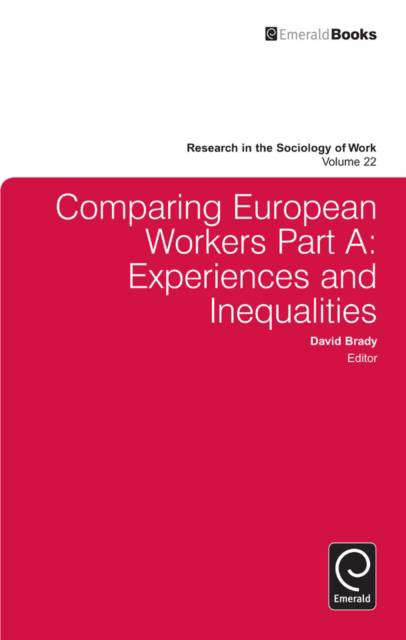
Bedankt voor het vertrouwen het afgelopen jaar! Om jou te bedanken bieden we GRATIS verzending (in België) aan op alles gedurende de hele maand januari.
- Afhalen na 1 uur in een winkel met voorraad
- In januari gratis thuislevering in België
- Ruim aanbod met 7 miljoen producten
Bedankt voor het vertrouwen het afgelopen jaar! Om jou te bedanken bieden we GRATIS verzending (in België) aan op alles gedurende de hele maand januari.
- Afhalen na 1 uur in een winkel met voorraad
- In januari gratis thuislevering in België
- Ruim aanbod met 7 miljoen producten
Zoeken
Comparing European Workers
Experiences and Inequalities
€ 302,95
+ 605 punten
Omschrijving
This first of two companion volumes places the labor markets, workplaces, jobs and workers of Europe in comparative perspective. It focuses on the politics, economics, sociology, and history of work and workers in Europe. Authors contribute a variety of methodological and theoretical perspectives, with papers that push the boundaries of evidence and argument. In order to place European workers in comparative perspectives, the volume features articles that analyze specific European countries, industries and firms, analyze Europe as one of a few cases, and analyze many European countries within a cross-national sample. Specific topics in 'Comparing European Workers Volume 1: Experiences and Inequalities' include: a multilevel study of perceived job insecurity in 27 European countries; work values and job rewards among European workers; explaining cross-national variation in wage inequality; managerial intensity and earnings inequality in affluent democracies; cross-national patterns in individual and household employment and work hours by gender and parenthood; and domestic and international causes of the rise of pay inequality in OECD nations.
Specificaties
Betrokkenen
- Uitgeverij:
Inhoud
- Aantal bladzijden:
- 264
- Taal:
- Engels
- Reeks:
Eigenschappen
- Productcode (EAN):
- 9781849509466
- Verschijningsdatum:
- 7/04/2011
- Uitvoering:
- Hardcover
- Formaat:
- Genaaid
- Afmetingen:
- 152 mm x 231 mm
- Gewicht:
- 521 g

Alleen bij Standaard Boekhandel
+ 605 punten op je klantenkaart van Standaard Boekhandel
Beoordelingen
We publiceren alleen reviews die voldoen aan de voorwaarden voor reviews. Bekijk onze voorwaarden voor reviews.








